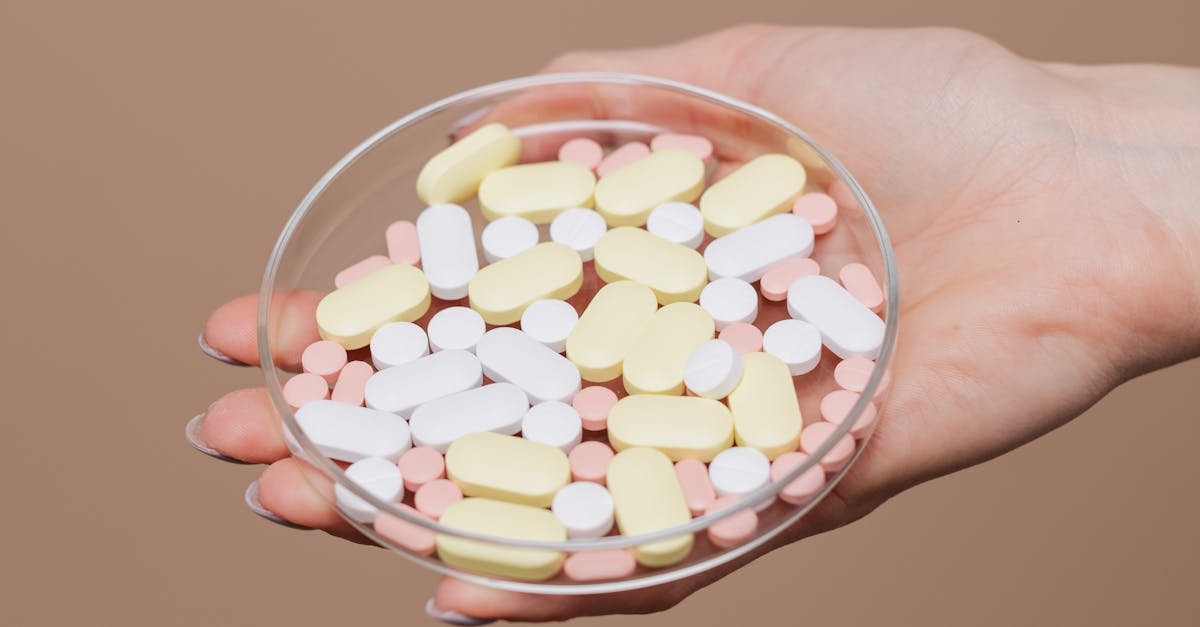
Implementing Individualized Treatment Plans
Inpatient mental health treatment facilities strive to implement individualized treatment plans for each patient in order to address their unique needs and challenges. This tailored approach allows mental health professionals to develop a personalized care regimen that is specifically designed to support the individual's journey towards wellness. By focusing on the individual, rather than a one-size-fits-all approach, inpatient treatment facilities can better address the complex nature of mental health disorders and provide more effective care.
The implementation of individualized treatment plans in inpatient treatment centers involves a comprehensive assessment of each patient's mental health history, current symptoms, and personal goals for recovery. This in-depth evaluation allows healthcare providers to create a holistic treatment plan that encompasses therapeutic interventions, medication management, and other supportive services. By tailoring the treatment plan to the individual's specific needs and preferences, inpatient treatment facilities can foster a supportive and nurturing environment that encourages healing and growth in each patient.
Personalized Approach to Recovery
Personalized Approach to Recovery
Inpatient Treatment facilities understand the importance of tailoring treatment plans to meet the unique needs of each individual. By taking a personalized approach to recovery, patients receive specialized care that targets their specific mental health challenges and goals. This individualized strategy enables healthcare providers to address the root causes of mental health issues and create a pathway towards sustainable healing and recovery within the structured environment of an inpatient facility.
Furthermore, a personalized approach to recovery fosters a sense of empowerment and ownership in patients as they actively participate in defining their treatment objectives. This collaborative effort between healthcare professionals and individuals in inpatient treatment encourages self-reflection, personal growth, and accountability throughout the recovery journey. By emphasizing the significance of personalized care, inpatient mental health facilities strive to promote long-lasting wellness and equip patients with the necessary tools to maintain a healthy and balanced life beyond their time within the treatment setting.
Offering Structured Daily Routine
Inpatient treatment facilities provide patients with a structured daily routine that serves as a cornerstone of their recovery process. By establishing a predictable schedule, individuals undergoing mental health treatment are able to regain a sense of stability and control in their lives. This structured routine includes set meal times, therapy sessions, recreational activities, and time for rest and relaxation. The consistent framework helps patients feel more secure and supported during their stay in the facility.
The benefits of a structured daily routine in inpatient treatment extend beyond merely organizing activities. It also helps individuals develop healthy habits, improve time management skills, and establish a sense of normalcy during a challenging period. Additionally, having a predictable schedule aids in reducing anxiety and uncertainty, as patients know what to expect each day. Overall, the structured routine offered in inpatient mental health treatment facilities plays a crucial role in promoting a supportive environment for individuals to focus on their recovery.
Benefits of Routine and Stability
Implementing routine and stability in inpatient treatment settings can significantly benefit individuals struggling with mental health disorders. Establishing a structured daily routine helps patients feel secure and grounded, fostering a sense of predictability amidst the challenges they may be facing. This predictability can alleviate anxiety and provide a sense of control over their environment, which is crucial for individuals in the recovery process.
Moreover, a stable routine in inpatient treatment facilitates the development of healthy habits and coping mechanisms. Through consistent daily schedules that include therapy sessions, group activities, meals, and relaxation time, patients can learn to structure their days in a way that supports their overall well-being. Routine can also assist in establishing boundaries, promoting self-discipline, and enhancing time management skills, all of which are essential components of a successful treatment plan in inpatient mental health settings.
Promoting Medication Management
Promoting medication management is a crucial aspect of inpatient treatment for individuals with mental health conditions. Medications prescribed in this setting play a vital role in addressing symptoms, managing underlying conditions, and promoting overall well-being. When administered and monitored effectively, medications can greatly enhance the success of the treatment plan and contribute to the patient's progress towards recovery.
In an inpatient setting, medication management is closely monitored by a team of healthcare professionals to ensure the proper dosage, timing, and effectiveness of the medications. This meticulous approach helps in identifying any potential side effects, adjusting the treatment plan as needed, and maximizing the benefits of the prescribed medications. By incorporating medication management into the overall treatment strategy, inpatient facilities aim to provide comprehensive care that addresses the unique needs of each individual undergoing mental health treatment.
Role of Medications in Treatment
Medications play a crucial role in the treatment of mental health disorders within the context of inpatient treatment. The goal of utilizing medications in inpatient mental health settings is to help manage symptoms effectively, allowing individuals to stabilize and engage more fully in their therapeutic interventions. Inpatient treatment facilities often have psychiatric specialists who are trained to assess and prescribe the appropriate medications tailored to each patient's specific needs and condition.
In inpatient treatment, medications are viewed as essential components of a comprehensive treatment plan designed to address the individual's mental health issues. By carefully monitoring the patient's response to medication, healthcare providers can make the necessary adjustments to ensure that the treatment remains effective. Additionally, inpatient settings provide a controlled environment where medications can be administered and supervised to optimize their benefits while minimizing potential risks.
FAQS
What is the main goal of inpatient mental health treatment?
The main goal of inpatient mental health treatment is to provide a safe and supportive environment for individuals to receive intensive care and support for their mental health needs.
How does inpatient mental health treatment implement individualized treatment plans?
Inpatient mental health treatment implements individualized treatment plans by assessing each individual's unique needs and developing a personalized treatment plan tailored to their specific mental health challenges.
What is the advantage of offering a structured daily routine in inpatient mental health treatment?
Offering a structured daily routine in inpatient mental health treatment helps individuals establish a sense of stability, predictability, and purpose, which can be beneficial for their mental health recovery.
How does inpatient mental health treatment promote medication management?
Inpatient mental health treatment promotes medication management by closely monitoring the effectiveness of medications, adjusting dosages as needed, and educating individuals on the importance of medication adherence in their treatment plan.
What role do medications play in inpatient mental health treatment?
Medications play a crucial role in inpatient mental health treatment by helping individuals manage symptoms, stabilize mood, and improve their overall mental well-being as part of a comprehensive treatment approach.


